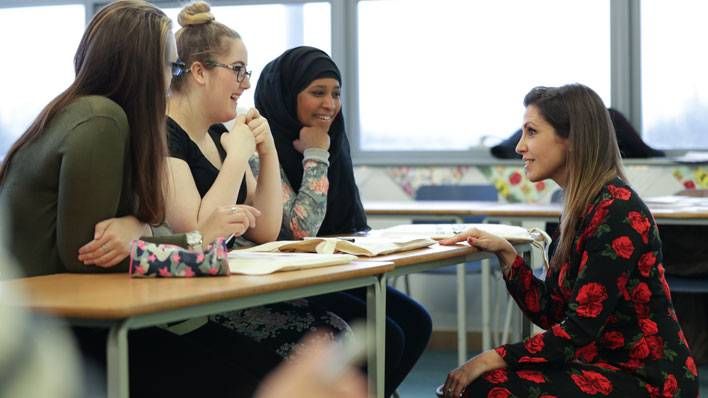
community
LifeSkills to help tackle UK employability skills gap
Barclays’ LifeSkills programme – launched in 2013 to help equip young people with the skills needed for the world of work – is to be expanded to support the whole UK workforce, the bank announces today.
The programme, championed by Baroness Karren Brady, was originally set up to help address youth unemployment and the gap between the skills of school-leavers and the needs of businesses. It has so far helped more than 6.7 million young people to develop employability skills, gain confidence and motivation.By extending its reach to cover the entire workforce, Barclays aims to help an additional 10 million adults build the skills they need to succeed in the workplace and move forward in their careers.
Announcing the extension of the programme, Ashok Vaswani, CEO of Barclays UK, said: “Today’s findings show the importance of lifelong learning, whatever your age or chosen career path. I firmly believe that education should not stop at the school gates – businesses, educators and the government all have a role to play.
“We need to work together to agree a core set of transferable employability skills, giving people of all ages the tools needed to upskill and ultimately creating a competitive workforce that will support the UK economy.
“That is why Barclays is backing the UK by announcing the expansion of our LifeSkills programme to all ages – by the end of 2022 we’re committing to helping a further 10 million people to build the employability skills they need to succeed in the future workplace.”
Closing the skills gap
An in-depth study conducted by Barclays LifeSkills – published today – reveals a significant employability skills gap. The research, ‘How Employable is the UK? Meeting the future skills challenge’, polled over 10,000 UK workers and found that nearly six in 10 adults lack all the core employability skills needed for the future world of work, such as proactivity, adaptability and leadership.
Despite the report’s finding that 79% of UK employers see such skills as vital to their industry in the next 10 years, 34%said they did not plan to offer any training in the next year. This highlights the need for educators, businesses and the government to work together and help close the gap, says the report.
The research recognises Millennials as the lowest performing age group – with just four in 10 25-34 year olds able to display all of the core skills. In comparison, 47% of Baby Boomers (51-65 year olds) have the full range of employability skills, indicating a clear generational divide.
Women outperform men in every skillset, with 46% of women polled able to demonstrate they possess all seven skills – compared to 39% of men. In spite of this, the study showed that men were often more likely to over-estimate their ability to perform certain skills, such as leadership and adaptability.
The report also highlighted some disparity in terms of region – with those based in London shown to have the highest levels of confidence in their employability skills. Of those polled, 33% of Londoners were found to be ‘highly confident’ compared to the UK average of 28%. Despite the capital’s confidence, the report found that only 40% of Londoners scored the maximum seven points – the lowest proportion of all UK regions.